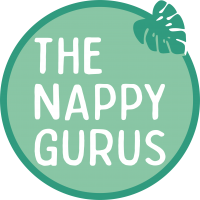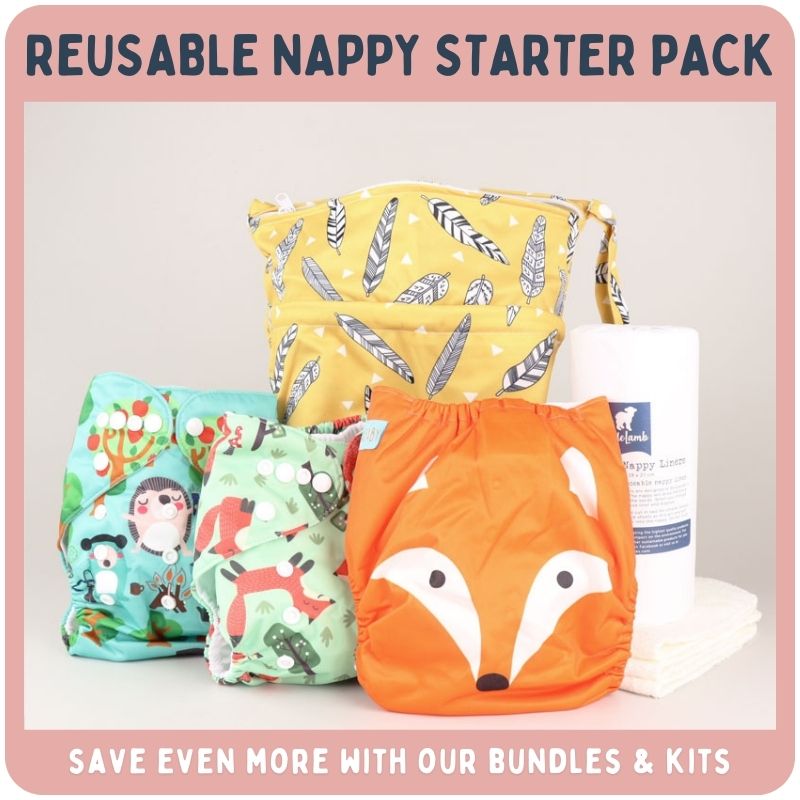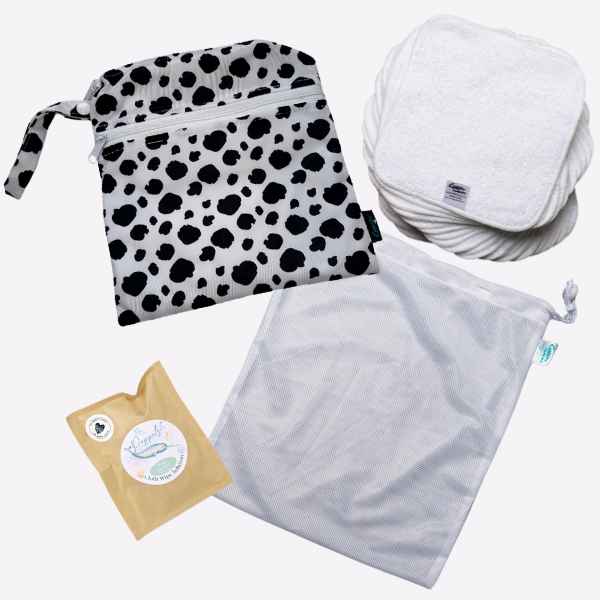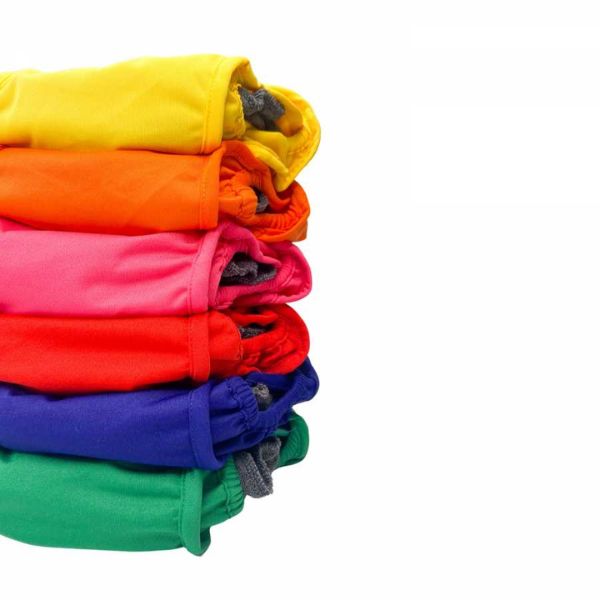Do Reusable Nappies Save Money?
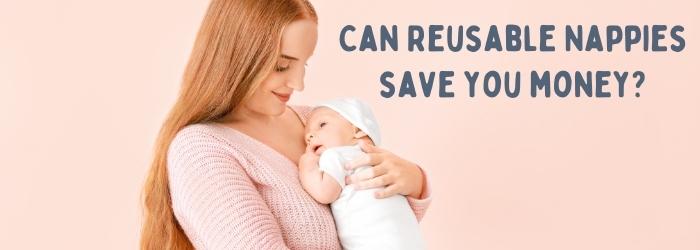
Updated April 2024
From buying the weekly food shop to heating our homes, the cost of living is rising exponentially, and it’s already starting to affect families across the UK. With this in mind, families need to start thinking of ways to save on living costs, and for those with babies, one way to do this is by switching from disposable nappies to reusable nappies.
Parents usually start to potty train their child at around two years old, and up to this point, over 4,000 disposable nappies will have been used, which is not only wasteful but extremely expensive. By switching to reusable cloth nappies, parents could save some all important £££.
In this article we answer some key questions if you're pondering whether cloth or disposable nappies will be best for your family:
- Do reusable nappies save money?
- How much do reusable nappies cost?
- How much money will reusable nappies save?
- Are reusable nappies better for the environment?
- How to use reusable nappies
- What about washing and drying cloth nappies?
- What are the best reusable nappies?
- What are reusable nappy incentive schemes?
Do reusable nappies save money?
Yes, even with the increased cost of energy, reusable nappies can save you a significant amount of money/ Initially, reusable cloth nappies have a higher start-up cost, as you have to ensure you have the correct amount of nappies, and the additional accessories to making use them straightforward, such as wet nappy bags and nappy liners.
How much do reusable nappies cost?
Reusable nappies cost from as little as £200 to kit out your baby though of course you can spend more. Let's break it down.
For full time use, starting from the newborn stage, you're going to need around 25 reusable nappies. Our most popular, best value, nappies are the Alva Baby, and a full set of these will cost you £173 (or £156 using discount code GOCLOTH), and being one-size, these nappies should take you right up to the potty training stage.
Our popular Nappy Accessories Pack will cost you just £22, and includes all the extra bits you'll need, and even includes some reusable wipes. Chuck in some nappy boosters for good measure (and to give your nappies extra absorbency when needed) and all in you're looking at a set up cost of under £200.
Of course, unlike disposables that get thrown away, reusable nappies need to be washed. So we've done the calculations for that too. Running a nappy wash, including electricty (at the Apr 24 price cap), water and detergent will cost you around 0.43 pence. Washing 3 x per week, that's a washing cost of £1.29. Over the course of infancy (or 3 years), if the energy costs remain at their current rate, washing your nappies will cost you around £196.
Air drying is FREE but if you have to tumble dry for 4 months out of the year, at an average cost of 53p to 1.42p (electricity prices have dropped since this article), that will add between £63 and £168 to your costs over the three year period.
So in total, using reusable nappies on one child could cost you as little as £430. Of course, if you go on to use those same nappies on future children, they become even more cost effective.
How much money will reusable nappies save?
We've analysed the costs of 11 major UK disposable nappy brands as of Oct 22, crunched the numbers (you can view our calculations at the bottom of this article) and found that, on average, disposable nappies will set you back a whopping £985 over the course of infancy.
Therefore reusable nappies could save you around £555 for your first child! And even more if you have a second child, or sell your nappies on to recoup some of the upfront costs. That's always going to be cheaper than disposables.
How to use reusable nappies
Some parents might be intimidated by reusable cloth nappies as they sound complicated to use, but they are actually very simple. There are many different types of cloth nappies, but all are shaped to fit correctly, fasten securely, and be adjusted accordingly. As well as this, reusables are reliable, comfortable and highly absorbent.
Even though there are many benefits to using reusables, some parents might still be worried to use them due to how hygienic they are and how hard it is to wash them.
What about washing and drying cloth nappies?
Cloth nappies are extremely sanitary and easy to wash, especially when you have had the experience of doing it a few times. Simply flush waste down the toilet, rinse the nappy to avoid any stains becoming permanent, and then place in a bucket until you’re ready to load the cloth nappy into the washing machine. When you're ready to do your laundry, use regular detergent, wash with other clothes and wash at an average temperature.
If you want to ensure you get the most out of washable nappies, it’s best to avoid drying them in the tumble dryer and instead use a airer, radiator or line dried outside - this is also a great way to save money!
Are reusable nappies better for the environment?
Yes, reusable nappies are better for the environment than single use nappies, especially when air dried and passed on to another child. Every day eight million nappies are thrown away, equating to three billion nappies a year. Considering this shocking figure, disposable nappies are one of the main contributions to household waste and can increase a parents carbon footprint by 40%.
With these figures in mind, parents should consider using reusable cloth nappies to help cut down waste and reduce their carbon footprint. But not only this, parents could save thousands of pounds during their child's infancy by choosing reusable nappies.
The best reusable nappies
There are many different types of reusable nappies, and it’s a good idea for parents to research which ones would be best for them and their baby before purchasing a cloth nappy starter set. The different types of nappies include:
There are slightly different costs to each of the reusables above, which is something to consider if cost-saving is your biggest motivation for using cloth nappies. If you are still unsure which to choose, our Reusable Nappy Quiz will give you a better idea.
We also offer some great starter packs to give you an opportunity to test out reusable nappies, including our Try Cloth for £10 kit, which gives you the opportunity to test run reusables and see if they are for you before investing in your own set.
What are reusable nappy incentive schemes?
If you want to save even more money using cloth nappies, some local councils will provide a voucher worth up to £200, or a reusable nappy starter kit to kickstart your reusable nappy journey. Find out which nappy incentive scheme your local council offers.
For more personalised recommendations and advice from one of our Nappy Gurus team, tell us more about yourself and your baby in our nappy recommendation form, and we’ll do the rest!
Sources:
Our calculations:
Costs per washing cycle:
Cost of electricity per kw/h based on Apr 24 price cap = 24.5p
Energy used per wash cycle: 0.77kwh - 18.8p
Water cost per cycle: 14p
Detergent cost per cycle: 10p
Costs of disposable nappies:
Nappy usage calculated based on average number of nappy changes per age bracket (e.g. 7 changes per day for period of 6-12 months, 5 changes per day for period of 18-24 months etc), and adjusted from 0 - 3 years.
Nappy prices taken from market analysis as of Apr 24, sampling 11 major brands, including Pampers, Aldi, Tesco, Naty and Lidl.
If you enjoyed this article, you may also enjoy:
- Do cloth nappies inhibit movement?
- Is babywearing good for babies?
- Your cloth nappy shopping list
- Are reusable nappies better for the environment?
About the author: Helen Rankin, a trailblazer in the reusable nappies industry, began her eco-friendly journey with the birth of her son, Archie, in 2004. Discovering a gap in the market, Helen launched Cheeky Wipes in 2008 and has not looked back since. Her collaboration with Laura, founder of The Nappy Gurus, sparked a partnership driven by a mutual passion for eco-conscious parenting. Helen took the helm of The Nappy Gurus in 2024, still committed to empowering parents with sustainable choices for their families.
